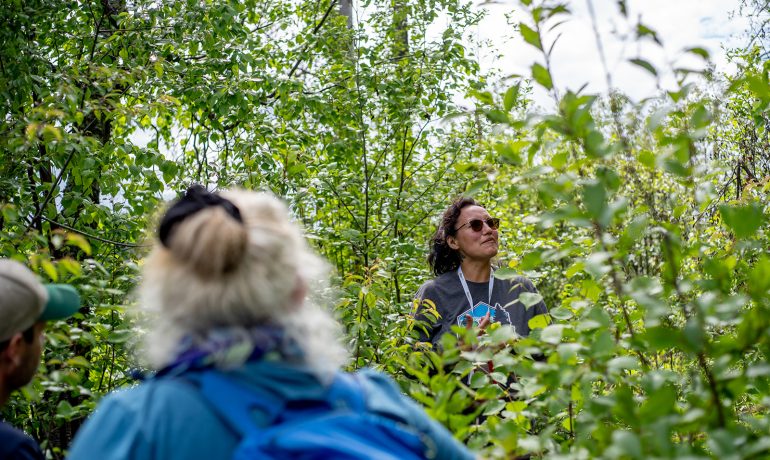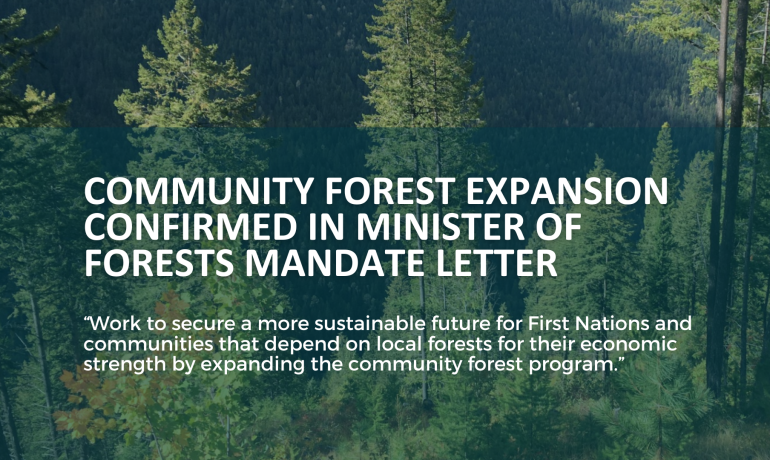Mushroom pickers petition against logging
Mushroom pickers and buyers are fighting and petitioning against the Nakusp and Area Community Forest’s (NACFOR) pending logging in the Fosthall area.
The area is considered a highly productive pine mushroom land, but NACFOR intends to move forward.
Jesper Nielsen of NACFOR said he was caught off guard by the resistance since he announced to the community more than a year ago that they were going to be logging in that area.
“We had the public meetings in 2009 and 2010, these were open houses, and we didn’t receive any public input,” Nielsen said.
NACFOR planned their cutting permit around the fact that mushroom picking does take place there. According to Nielsen, they spent around four times longer planning around allowing mushrooms to survive once they cut.
NACFOR’s compromise between timber harvesting and mushrooming is a strip system, where the loggers will cut 25 to 45 metre strips instead of the more conventional large opening.
This is called an “edge effect” which is said to not cause as much impact on the forest canopy.
However, life-long Nakusp resident and former mushroom picker/buyer Lisa Bjarnasan said no matter what, if logging is done, even in that way, there will be a very negative impact on mushroom growth.
“I mean no offence, but Jesper is not a mushroom picker,” Bjarnasan said. “It’s true mushrooms grow from the edge of the forest, but the strongest is when the trees are still standing and inside.”
According to Bjarnasan, Fosthall is one of the most productive areas in the province. She said it’s the one place that consistently produced year after year, even during low yield years in the region.
“I’ve lived here all of my life, I’ve been picking mushrooms since I was five-years-old – that would make it 35 years now,” she said. “I also was a buyer. My parents used to be buyers and I was a buyer for about eight years. With my experience as a buyer, the most productive area and the most consistent area has always been Fosthall.”
And that’s why Bjarnasan started a petition to stop the logging.
The petition is said to have more than 200 signatures on it and a separate one has been made for businesses.
“It’s not a problem only for mushroom pickers, it involves an entire community,” Bjarnasan said. “The local businesses. There are out of town pickers. It’s almost like a fall tourism thing.”
She went on to say everyone will suffer if mushroom picking is deterred in Fosthall, because it brings in people who eat in Nakusp’s restaurants, sleep in the B&B’s and spend money in the village.
However, Nielsen said he hasn’t seen any evidence showing a higher long-term value for mushrooms in the Fosthall area over their harvesting.
“Our analyses indicates the opposite,” he said. “It is difficult to make accurate comparisons because one – both mushroom and timber prices are highly variable and two – being a cash crop, there is simply no hard data available on historical mushroom revenues from the Fosthall area.”
Nielsen said the two values are not mutually exclusive and that NACFOR intends to make the best compromise between the mushrooms and the logging that it can.
He also said the Fosthall area, even if NACFOR didn’t have the timber harvesting rights, someone else would.
The total charted area is 618 hectares. Currently, a little less than one sixth will be harvested, with 45 hectares indicated to be in “highly productive” areas.
“Basically, it’s all revenue that’s returned to the community in one form or another,” he said.
Bjarnasan, and other pickers and buyers in the area, plan to make their case in one of the upcoming NACFOR meetings. They are gathering data and input from people around town, and plan to appear before the NACFOR board, most likely in November.
Arrow Lakes News
By Sam Smith – Arrow Lakes News
Published: October 26, 2010 10:00 AM
Updated: October 26, 2010 10:37 AM
Related Post
As Published in Canadian Forest Industries Magazine, Pulp & Paper Magazine and Canadian Biomass Magazine
Jennifer Gunter’s Op Ed, “Community Forests: Rooted in Community,
Minister of Forests Mandated to Expand BC’s Community Forest Program
In the recently released mandate letter to the Minister



